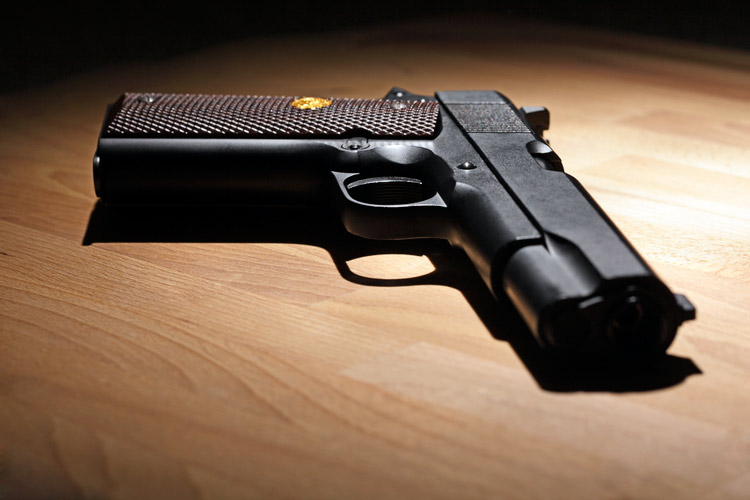People v Williams
2020 NY Slip Op 07664 [36 NY3d 156]
Decided on December 17, 2020
Wrongful conviction? Contact a criminal appeals lawyer today.
Issue:
Temporary Lawful Possession for Self-Defense
Whether the defendant was entitled to a temporary and lawful possession of a weapon charge when he took possession of a friend’s firearm and shot an acquaintance and a bystander in the lobby of an apartment building where defendant claims he acted in self-defense.
Holding:
Temporary Lawful Possession Means No Dangerous Use
The Court held that the defendant was not entitled to a temporary and lawful possession of a weapon charge because he used the weapon in a dangerous manner.
Facts:
Lance Williams was charged with several counts of attempted murder, assault, and criminal possession of a weapon in the second degree after he shot an acquaintance and bystander in the lobby of a large apartment building. As Williams was leaving the building where he was visiting a friend, he saw the acquaintance, with whom he had a history of violent confrontations, outside the building and observed him pulling a gun out of his pocket. Williams retreated to his friend’s apartment and asked him to call the police. His friend declined, but grabbed a loaded gun, cocked it, and “put it on his waist,” telling Williams he would escort him to his car. After confirming the presence of the men in the lobby, Williams’ friend handed him the gun, which Williams accepted without objection.
Williams them exited the stairwell into the lobby with the gun in his hand. As he stepped toward the exit, he saw the acquaintance down a nearby hallway. According to Williams, the man had his hand in his pocket and lifted it upward as if he was going to fire a gun. In response, Williams “just blacked out” and “started shooting,” firing five shots across the lobby, striking the acquaintance three times and hitting a bystander before running out of the building. Once outside, Williams handed the gun back to his friend and fled.
In trial court, the jury acquitted Williams of assault and attempted murder charges, but found him guilty of unlawful possession of the firearm used in the shooting. Williams appealed, arguing he was entitled to a charge pertaining to temporary and lawful possession of the weapon for purposes of self-defense.
Analysis:
Temporary and Lawful Possession
In order to trigger the right to a jury charge concerning the defense of temporary and lawful possession, “there must be proof in the record showing a legal excuse for…possession as well as facts tending to establish that, once possession has been obtained, the weapon had not been used in a dangerous manner.” (People v Williams, 50 NY2d 1043, 1044-1045 [1980]). In accordance with those principles, the pattern jury charge relating to temporary and lawful possession explains that “a person has innocent possession of a weapon when [that person] comes into possession of the weapon in an excusable manner and maintains possession…of the weapon only long enough to dispose of it safely” (CJI2d[NY] Possession—Temporary and Lawful Possession). The defendant in this case did not intend to dispose of the firearm safely or turn it over to the authorities, and his firing shots into a populated lobby was reckless and dangerous.
Justification Defense May Excuse Unlawful Use of Weapon, But Not Unlawful Possession
The Court holds that though the defense of justification may render the use of a firearm lawful, it is not a defense to the unlawful possession of the weapon (People v Almodovar, 62 NY2d 126, 130 [1984]). Here, the defendant argues that because the eventual firing of the gun was in self-defense and therefore justified, he is entitled to the temporary and lawful possession charge. However, the Court maintains that the essence of criminal possession “is the act of possessing a weapon unlawfully,” therefore “once the unlawful possession of the weapon is established, the possessory crime is complete and any unlawful use of the weapon is punishable as a separate crime” (id. at 130). The defendant accepted the gun in anticipation of confrontation, and the law is clear that “a person either possesses a weapon lawfully or…does not” and he “may not avoid the criminal charge by claiming that he possessed the weapon for his protection” (id.). The Court dismissed the defendant’s appeal and the order was affirmed.
